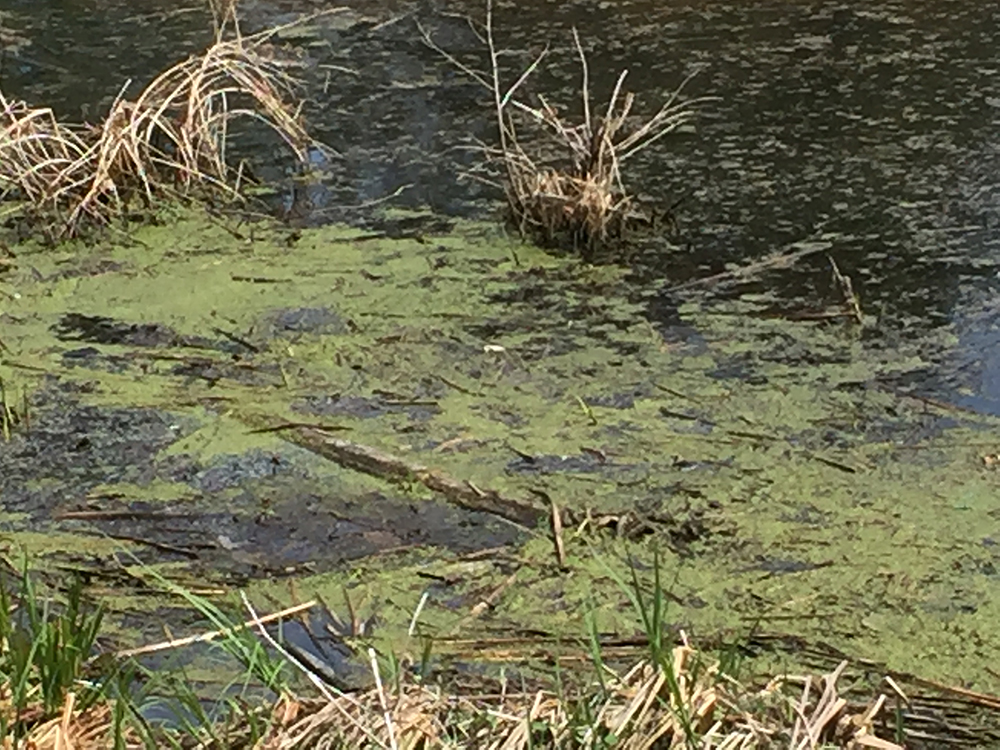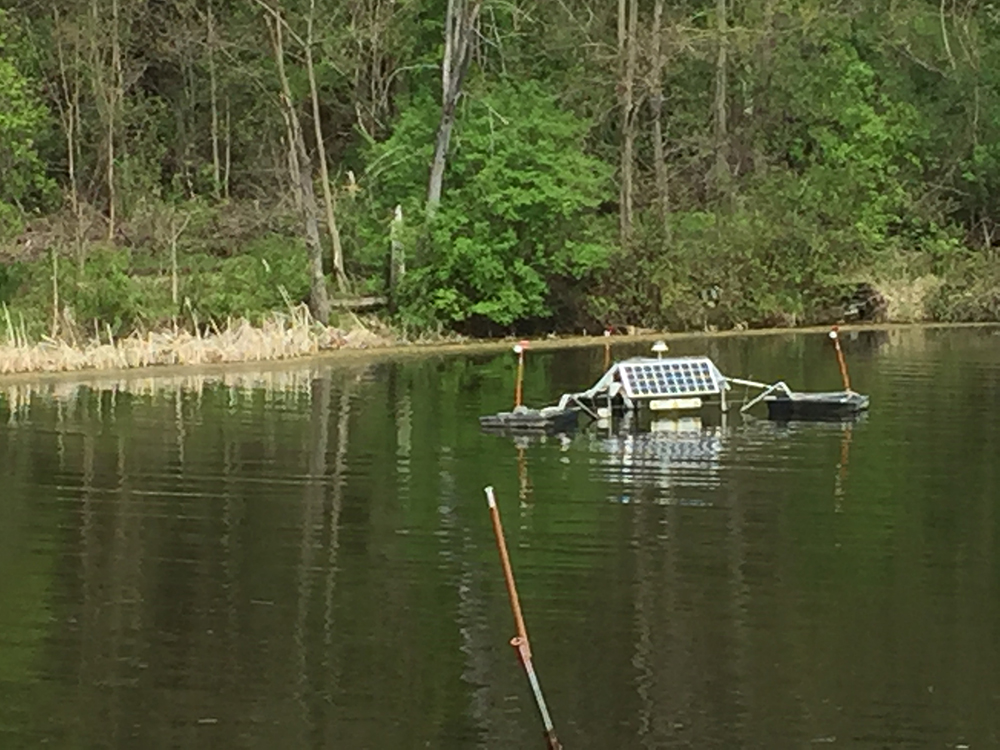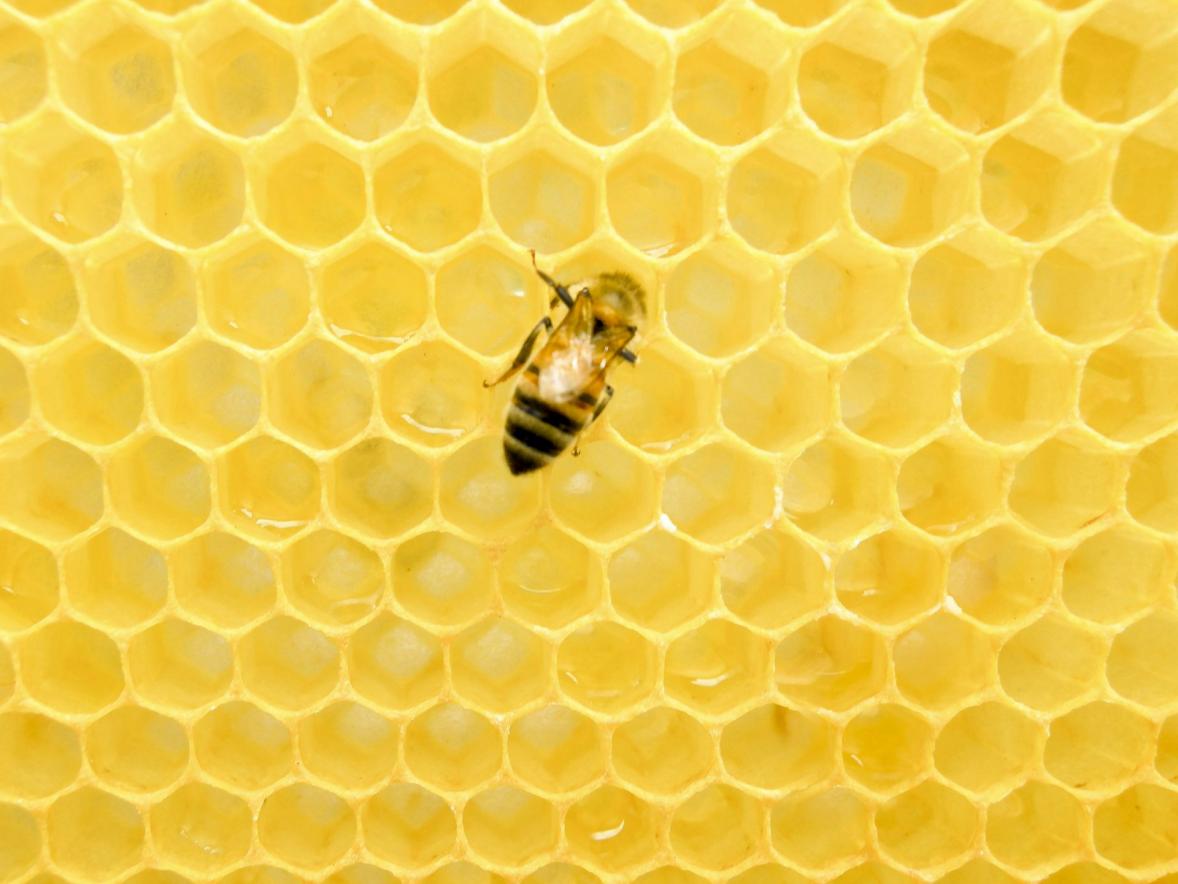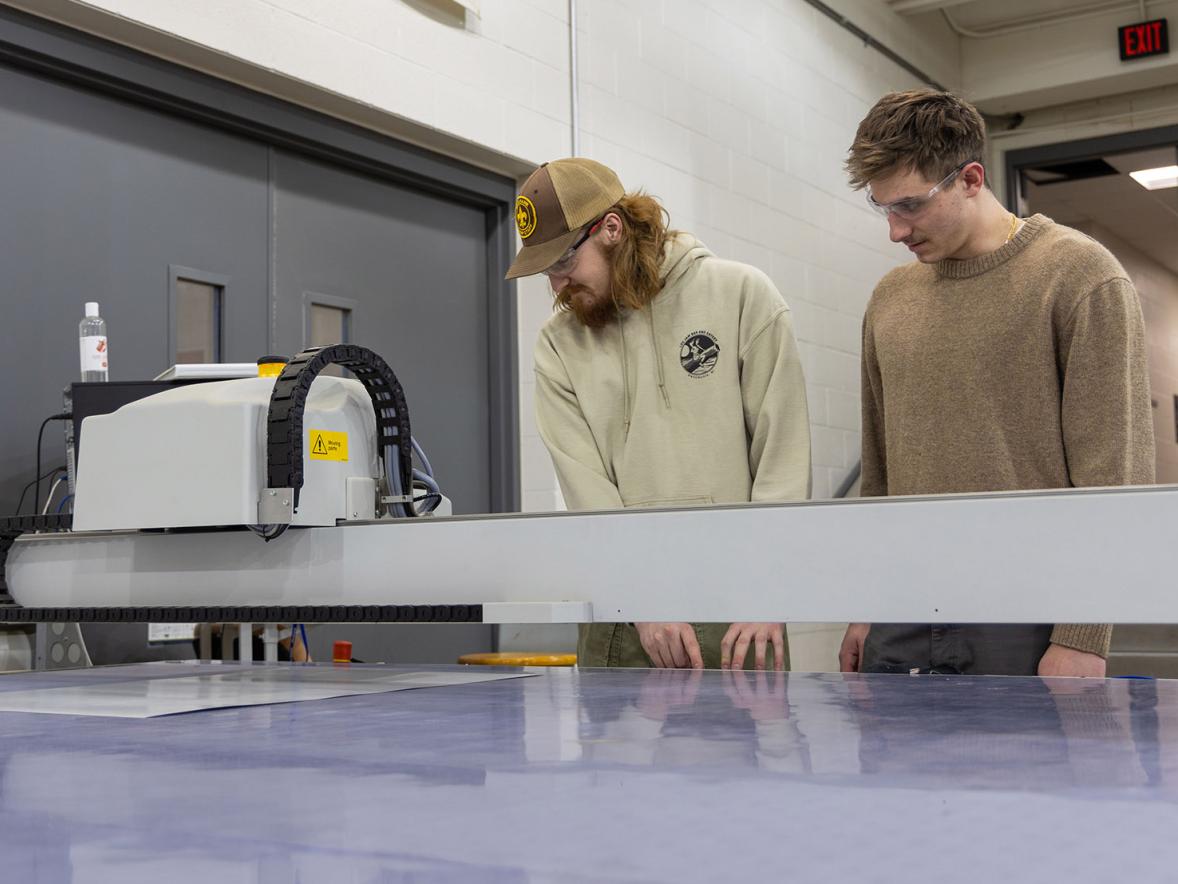Could the algae on Lake Menomin make biofuel?
That is the question some University of Wisconsin-Stout students looked at as part of their research for capstone projects.
Jerica Hall, a senior studying mechanical engineering, talked about the findings she and fellow students Isaac Audette, senior, manufacturing engineering, St. Paul; Colin Feuster, senior engineering technology, Elk Mound; and Nick Gilbert, junior mechanical engineering, St. Paul, did when they looked into an algae collection system. It was part of Research Day at UW-Stout in the spring.
The group looked into creating a prototype of an algae collection system. Using a pump, the system would take in water from Lake Menomin. The water would go through an electro-coagulator that would create bubbles to push the algae to the top of a collection box. The algae then would be brushed off the top and placed into a collection area, and the clean water would return to the lake.
“We were trying to find an efficient way to separate the algae from the water,” Hall said, noting the brush system appeared like it would work the best and be the most cost-effective.

Blue-green algae generally grow in lakes, ponds and slow-moving streams when the water is warm and enriched with nutrients like phosphorus or nitrogen. As the name suggests, it’s most often blue-green in color but can also be reddish-purple or brown.
The student group had considered other alternatives to collect algae, including a boat attachment to skim algae off the surface of the water and collect it on the boat, or possibly filtering the algae out of the lake water.
The students determined the electrocoagulation method was the most unique. The coagulator would not use a filter system, thus requiring less maintenance than other methods. The prototype called for a fish-tank size model. That size would probably not require any special Department of Natural Resources permits to test it, according to the students’ research.
“The amount of algae collection will depend on the time of year we’re collecting,” Hall said.
Although algae-derived fuel, so far, has not been competitive with fossil-based fuels, if it is collected from a lake to help clean it without the cost of growing the algae, the fuel could cost less to produce, students surmised.

Another group of students — including Mick Havrilla, senior manufacturing engineering, Rosemount, Minn.; Chris Schutt, senior, mechanical engineering, Hastings, Minn.; Abby Shockley, senior, mechanical engineering, Wheeler; and Gabe Toft, senior, manufacturing engineering, Eleva — studied what would happen to the algae after it was collected.
They looked into using a hydraulic press to get the oil out of algae that could then be processed further to create biofuel.
Most algae biofuel is made at algae farms, so it is unknown how much oil the lake algae would create in comparison.
There also is concern about using lake algae, which can have cyanobacteria – a toxic blue-green algae. However, the algae could be composted with active charcoal to address that issue, Shockley said.
Once the oil is pulled from the algae, spent algae could be used as fertilizer in the agricultural process, the students recommended.
Hall said one student idea is to use the biofuel to generate power for Menomonie and light city streets.
UW-Stout is Wisconsin’s Polytechnic University, with a focus on applied learning, collaboration with business and industry, and career outcomes.
###
Photos
Algae in Wolske Bay on Lake Menomin.
Menomonie uses a solar-powered aerator to help control blue-green algae in Wolske Bay.







